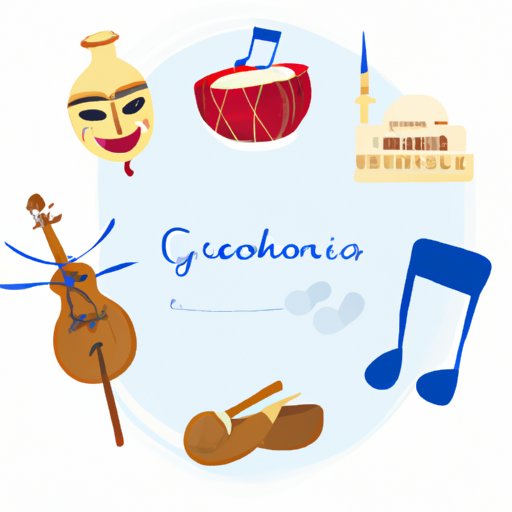Introduction
The culture of Greece is an amalgamation of its ancient history, its unique geography, and the influence of immigrants from around the world. It is a rich tapestry of traditions and customs that have been passed down through generations, as well as adaptations to new technologies, ideas and ways of life. This article will explore the cultural history and traditions of Greece, from its ancient past to its present-day influences.

Ancient Greek Influence on Modern Greek Culture
Greece has a long and storied history, and its culture has been shaped by centuries of occupation and migration. Ancient Greek culture remains a strong influence on modern Greek culture, particularly in the areas of music, dance and theatre. Music was an important part of ancient Greek life, with instruments such as lyres and flutes used for both entertainment and religious ceremonies. Traditional Greek dance, known as syrtos, is still popular today and is often seen at weddings and other celebrations. Theatre was also a major part of ancient Greek culture, with plays being performed in amphitheatres across the country.
Religion has also had a major influence on Greek culture. The Greek Orthodox Church is the dominant religion in the country, and it has shaped many aspects of life in Greece, from architecture to food. The Church is closely intertwined with state institutions, and its teachings are widely accepted by the majority of Greeks.

Regional Variations in Greek Cuisine
Greek cuisine is renowned for its fresh ingredients and delicious flavors. Traditional dishes include moussaka (a layered dish of vegetables, meat and cheese), dolmades (stuffed vine leaves) and souvlaki (grilled kebabs). Regional specialties vary throughout the country, with the islands of Crete, Santorini and Corfu each having their own unique flavors and ingredients. Seafood is especially popular in coastal areas, while meat dishes are more common in inland regions.
Immigration’s Impact on Greek Culture
Greece has seen a large influx of immigrants in recent years, mainly from Eastern Europe and Asia. This has had a significant impact on the social and political climate of the country. Immigrants have brought new customs and beliefs to the country, and the government has had to adapt to these changes. There is an increasing acceptance of diversity in the country, and immigrants are beginning to feel more included in society.
At the same time, there has been some tension between locals and immigrants, as some members of the population have been wary of the changes that this influx of people is bringing. This has led to increased levels of xenophobia and discrimination against immigrants, which the government has sought to address. Despite this, immigrants are slowly becoming more integrated into Greek society.
Visual Arts Scene of Greece
Greece has a vibrant visual arts scene, with a number of galleries, festivals and exhibitions taking place throughout the year. Many of the country’s museums and galleries showcase works from both local and international artists, giving visitors the opportunity to explore a wide range of styles and mediums. The National Gallery of Athens is one of the most popular galleries in the city, and it features works from both Greek and foreign artists. In addition, a number of annual festivals and exhibitions take place in major cities across the country, offering a chance to experience the best of contemporary Greek art.
Conclusion
The culture of Greece is a fascinating blend of ancient traditions and modern influences. Its music, dance, theatre, religion and cuisine have been shaped by centuries of history, while immigration has brought new perspectives and customs to the country. Visual arts are also thriving in Greece, with galleries, festivals and exhibitions showcasing the work of both local and international artists. Greece is a vibrant and diverse country, and its culture is an integral part of its identity.
(Note: Is this article not meeting your expectations? Do you have knowledge or insights to share? Unlock new opportunities and expand your reach by joining our authors team. Click Registration to join us and share your expertise with our readers.)
